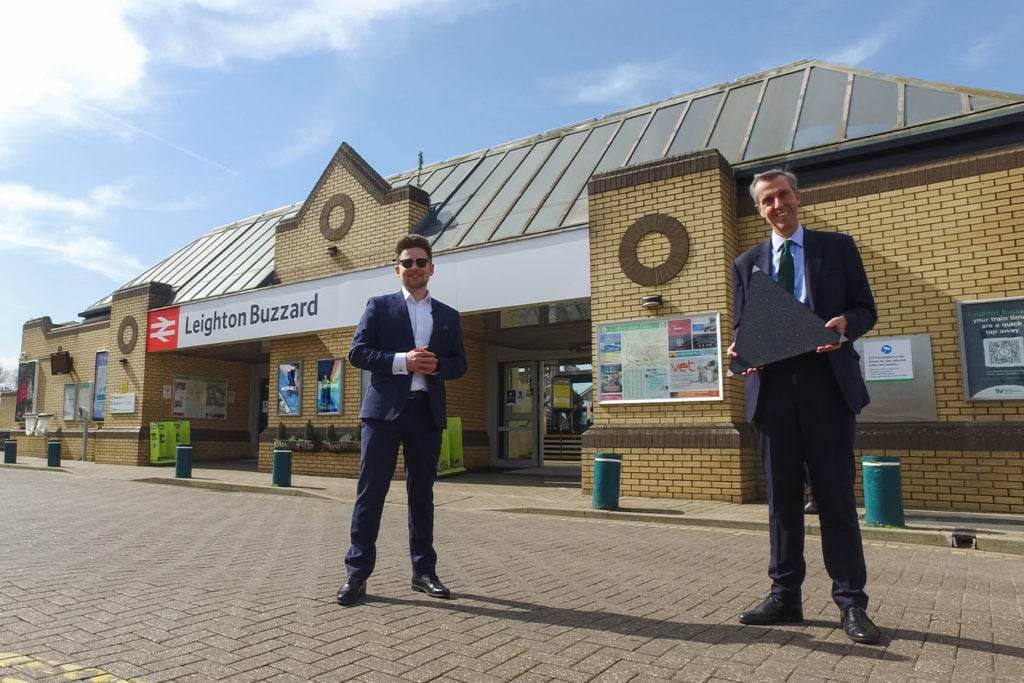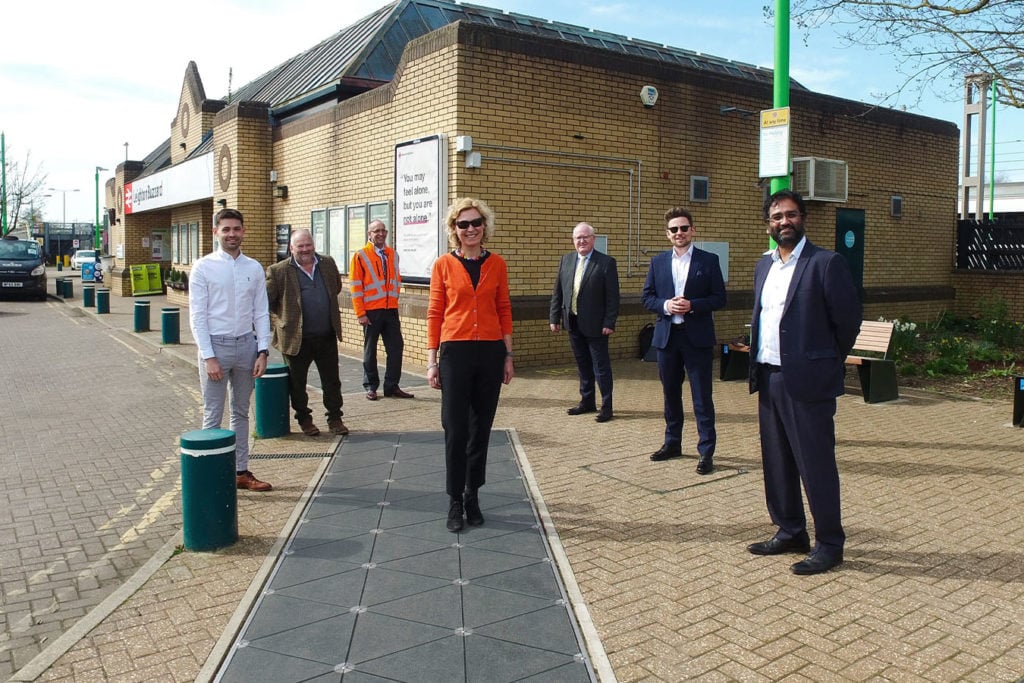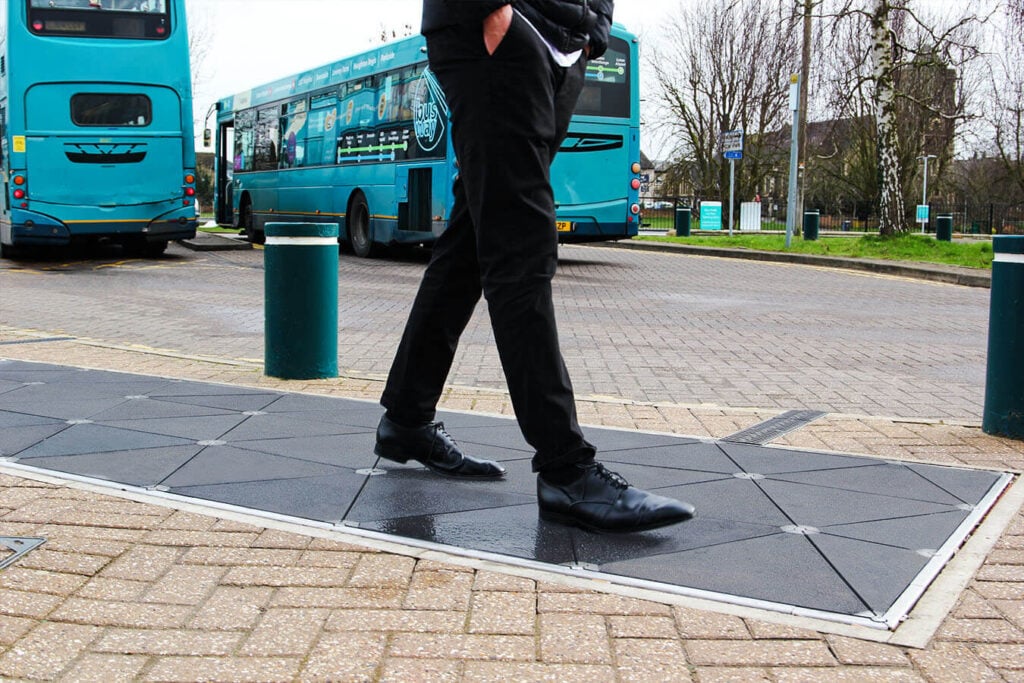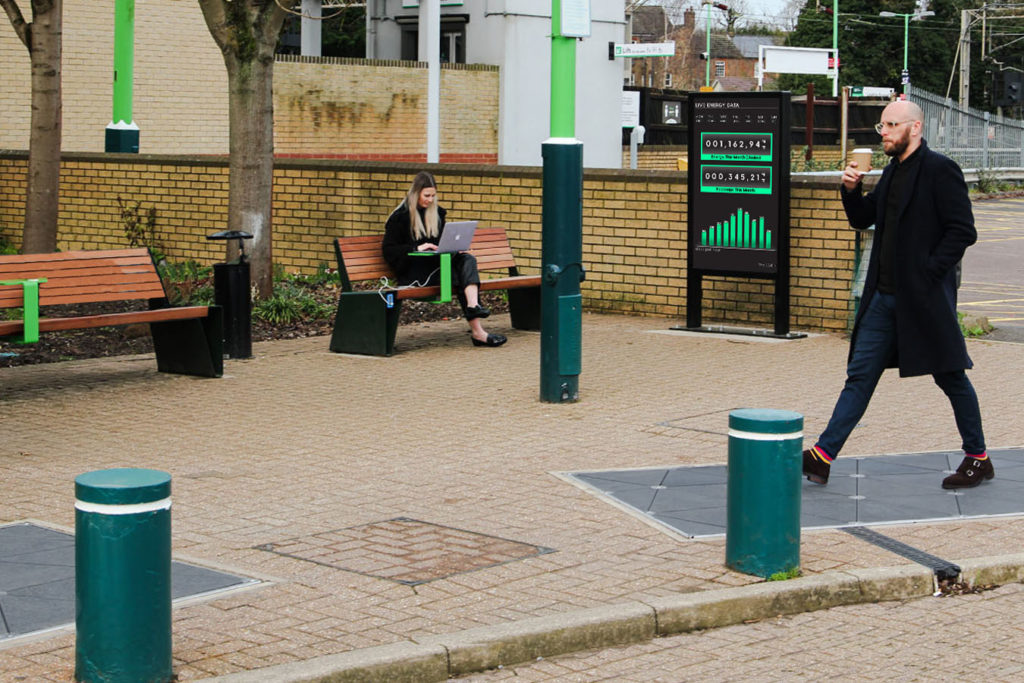UK’s First train station to launch kinetic-tech floor, Leighton Buzzard Paves the national rails future.
April 27, 2021
The first ground–breaking project at a UK transport hub to utilise kinetic energy from commuters’ footsteps has been launched by Pavegen & Central Bedfordshire Council at Leighton Buzzard train station.
Funded by the Department of Transport through the £22.9 million ADEPT SMART places Live Labs Programme, the project benefits aim to reach far beyond Bedfordshire. Using Leighton Buzzard as an initial platform, the project seeks to encourage other transport hubs to follow suit and go green with pioneering technology like Pavegen.


Transport Secretary, Grant Shapps said: “Projects such as Pavegen, are so important as we look to level-up local areas across the UK and build back greener following the pandemic.
“Putting your foot to the floor in a car has always been a way of generating power. But now, with this fantastic piece of British technology, you can do it simply by walking along a stretch of pavement and in a green and clean way, too.”
Leighton Buzzard Train Station now has two Pavegen walkways both made up of its kinetic floor tiles. Pavegen will use those walkways to engage the 1.75 million strong community travelling to and from Leighton Buzzard, bringing messages to life and raising awareness for sustainability and the organisations dedication to it. Pavegen will be also working alongside Central Bedfordshire Council to demonstrate how digital engagement through the array can help the high street in these challenging times, using the reward scheme, through the supplementary Pavegen App.
Andrew Selous, MP for South West Bedfordshire said: “I like the fact that it engages people, involves exercise and it is creating clean electricity all the time. I think that connection between people and the energy being created through movement is a really good join up.”
Central Bedfordshire Council, which secured £1.05m for its Live Labs programme, has partnered with Ringway Jacobs, West Midlands Trains and technology provider Pavegen, to create the transformative project. The aim is to engage visitors, showcase the council’s green credentials and to power two USB charging benches, and a digital data screen. The data screen will show commuters their contribution and can host important messages. The project is one of eight local authority led Live Labs aiming to transform local places and highways through piloting innovation across energy, data, materials and mobility.


Cllr Ian Dalgarno, Executive Member for Community Services at Central Bedfordshire Council said: “I am delighted that Central Bedfordshire Council is part of this exciting and innovative trial as part of the ADEPT Live Labs Programme. This trial looks at how we could use kinetic energy to power nearby highway assets and having seen the installation I am really impressed with how the Pavegen technology works. It’s our first Live Labs trial to be complete and I am certain it is something I think our residents will really engage with.”
Giles Perkins, Live Labs Programme Director said “The untapped footfall energy at our transport hubs represents a real opportunity to provide sustainable energy sources to power bespoke applications, while engaging audiences and encouraging behavioural change. This trial will help demonstrate the viability of the technology and could be a step change in the way transport hubs engage with commuters.”

Laurence Kemball-Cook, CEO, Pavegen: “Pavegen is very proud to be part of this pilot project. We are excited at the prospect of helping to drive a national rollout to create a greener, more sustainable transport network for the U.K. Pavegen engages and inspires communities while highlighting the benefits of sustainability in a memorable and interactive way.
In addition, we have evolved our product to create a new and engaging mobile app platform to to create a way for transport hubs to reward their passengers for the footsteps they use. These rewards could be used to encourage footfall and get people back to retail, leisure or hospitality sections of the UK’s larger train stations. This is without losing site of the purpose, using footsteps to create clean electricity for off-grid, bespoke solutions.”

